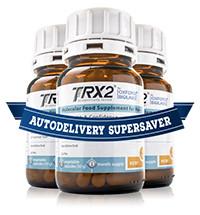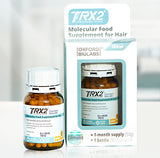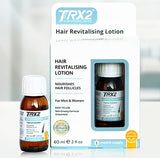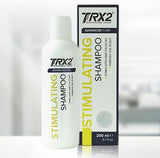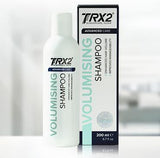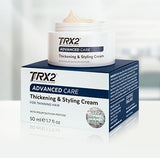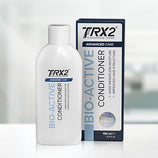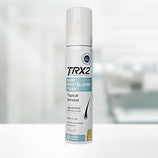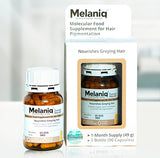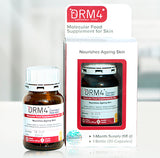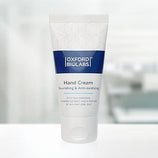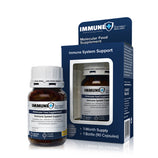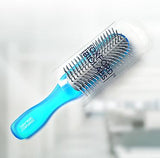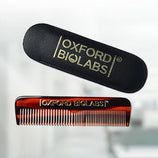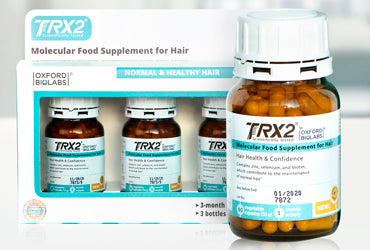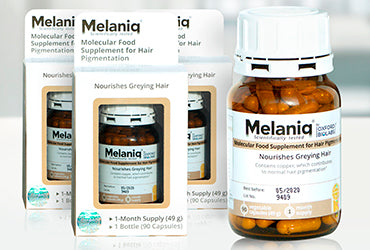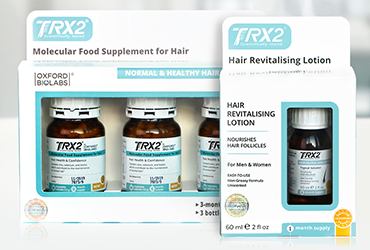What Are the Benefits of Fish Oil Supplements?
It’s no secret that few things are better for hair than fish oil supplements. Omega-3, one of the main nutrients that make up fish oil, is well-known for making hair grow longer, stronger, shinier, and healthier.
This is an exciting new application for fish oil, and it’s quickly gaining traction among medical experts. It began with a 2015 study showing fish oil’s efficacy as a remedy for thinning hair. Since then, the industry has taken off, using it as an essential ingredient in complex hair treatments.
There are several reasons why fish oil has these remarkable properties, which will be described below.
Fish Oil Benefits for Hair and Skin
In a word, yes. Fish oil is incredibly good for hair. More specifically, the fatty acids that make up fish oil help in all sorts of ways to keep one looking their best.
1. Strengthens the Hair
A report published in 2013 showed that fatty acid deficiency is a major cause in greying, thinning, or brittle hair. Omega-3s and other fatty acids are key nutrients for hair follicles. When deprived of them, follicles simply stop working as well, and hair suffers as a result. By maintaining adequate levels of fatty acids through fish oil or other supplements, the working life of hair follicles can be extended for many years.
2. Hydrates the Skin
Anyone looking to stay healthy knows how important it is to stay hydrated. Omega-3s help hydrate the skin more than water alone by letting the body more efficiently distribute and store liquids. Fish oil also helps regulate the production of sebum, the natural oil that skin produces. Too little sebum can result in dry skin, while too much results in an oily appearance and can lead to hair thinning.
3. Fights Inflammation
The same properties that make fish oil great for pain and arthritis mean it also does wonders for hair and skin. Inflammation of the scalp is one of the major causes of hair loss, as follicles are killed off and simply stop producing hair. By stopping the inflammation from occurring in the first place, fish oil helps follicles stay healthy and keep working longer.
4. Protects from the Sun
According to 2003 and 2013 studies, the fatty acids in fish oil are incorporated into the skin, granting it increased resistance to sun damage. Eicosapentaenoic acid, better known as EPA, is especially helpful. When EPA was isolated for administration to study participants, they became less susceptible to sunburn and other sun-related skin problems.
How Fish Oil Benefits the Whole Body
Beyond what it does for hair and skin, fish oil has many other health benefits.
Lowers Blood Pressure
One of the most well-known uses of fish oil is as a remedy for hypertension, or high blood pressure. Hypertension is best managed through lifestyle changes such as reducing stress or cutting down on salt, but increased intake of omega-3’s can provide benefits also.
Reduces Triglycerides
Triglycerides are simply fat carried in the bloodstream. Everyone has some, and it’s normal and healthy at the correct levels. Too much can lead to atherosclerosis, which leads to strokes and heart disease. Fortunately, the omega-3 fatty acids in fish oil have been shown to reduce triglyceride levels.
Reduces Arterial Plaque
Fish oil supplements also help slow the growth of atheroma, commonly known as arterial plaque, another major factor in heart disease. Over time, the arteries can become clogged with calcium lipids, and various tissues. If left unchecked, the arteries will enlarge to keep blood flowing, and can eventually burst.
Improves Memory
Studies go back and forth, but many scientists agree that fish oil can also help memory and mental acuity. University scientists in the UK and New Zealand conducted a joint trial to settle the matter, and found that one gram daily of DHA improved the mental faculties of 176 adults.
Reduces Acne
Clinical studies have shown that fish oil can reduce the severity of acne outbreaks. The trial was conducted with two groups, both of whom continued their typical regimen of acne products, but only one of which supplemented with fish oil. 60% of the fish oil takers reported that their acne had all but disappeared after 12 weeks.
Makes Hair Grow
More and more, fish oil is seeing use as a way to help hair growth.
Aids in Weight Loss
Japanese researchers recently found that fish oil helps the body burn off fat, at least in mice. The mice that were given the oil gained up to 10% less weight and 25% less fat than the control group when fed the same diet. The study has yet to be performed with humans, but it is a very promising start.
Boosts the Immune System
Maintaining a healthy level of fish oil in the diet also helps the immune system. Omega-3 fatty acids supercharge cytokines and eicosanoids, important compounds that cells use to fight infection. Taking fish oil pills can help one avoid minor diseases like the common cold, and help stave off more serious maladies.
Relieves Inflammation, Including Arthritis
Multiple studies have found that the omega-3s contained in fish oil help reduce inflammation across the body. This is great news for several reasons, but people suffering from arthritis have the most cause for celebration. Fish oil helps reduce the frequency and severity of flare-ups.
Improves Male Fertility
Finally, omega 3 fatty acids help increase sperm quality in men and male animals. Specifically, the fish oil grants sperm a resistance to lipid peroxidative attacks while inside the female body. This gives the sperm a better chance of reaching the egg, which ultimately increases the chance of conception.
Choosing the Right Kind of Fish Oil Pills
Since the benefits of fish oil became so well-known, dozens or even hundreds of supplements have hit the market. It can be difficult to figure out which specific fish oil is the right fit. And with something so important, it’s worth taking the time and effort to learn the pros and cons of each.
Here are the factors that should part if the decision-making process:
Mercury Content
Despite all the health benefits of a diet heavy in fish, there is one major drawback. Mercury levels in the oceans have sharply risen over the past century, and that means most fish now contain some amount of the poisonous substance. The US FDA publishes a list of fish and their mercury content, that should be taken into account when making food choices.
For supplements, though, the answer is simpler. The better brands of fish oil are micro-distilled, removing most or all harmful substances.
Freshness
Unlike synthetically created vitamins, fish oil capsules are exactly what they sound like. Fish are caught, processed, and the resulting oil is placed in soft gel capsules. That means that, just like a bottle of olive oil sitting on a shelf, it can eventually expire.
Check the expiration date on the bottle of fish oil before purchasing. The smell of expired fish oil is noticeably “fishy”, which indicates that they have most likely gone off.
Sustainability
The sustainable, responsible use of natural resources is a concern for more and more people. Most supplements that use sustainably farmed or caught fish will say so on the label, as a selling point. Atlantic cod, sea bass, and wild-caught Atlantic salmon are considered endangered due to overfishing, and supplements using these sources should be avoided.
Dosage
Since fish oil comes in soft gels, it’s not practical to subdivide the pills like a tablet.
The US Food & Drug Administration and other governmental health agencies agree that 1,100 mg of Omega-3s daily are sufficient for adult women, and 1,600 mg for men. Children under 13 should take less, as shown.
|
Table 1: Adequate Intakes (AIs) for Omega-3s |
||||
|
Age |
Male |
Female |
Pregnancy |
Lactation |
|
Birth to 6 months* |
0.5 g |
0.5 g |
||
|
7–12 months* |
0.5 g |
0.5 g |
||
|
1–3 years** |
0.7 g |
0.7 g |
||
|
4–8 years** |
0.9 g |
0.9 g |
||
|
9–13 years** |
1.2 g |
1.0 g |
||
|
14–18 years** |
1.6 g |
1.1 g |
1.4 g |
1.3 g |
|
19-50 years** |
1.6 g |
1.1 g |
1.4 g |
1.3 g |
|
51+ years** |
1.6 g |
1.1 g |
||
*As total omega-3s
**As ALA
Source: US Department of Health & Human Services
The Best Fish for Omega-3 Fatty Acids
Of course, supplements aren’t the only way to take in fish oil. In general, natural, “whole food” sources are more easily processed by the body. Fish is fairly easy to prepare, so it can be incorporated into the diet if it hasn’t been already.
In general, fattier fish contain higher levels of beneficial Omega-3s. When looking to maximise Omega-3 intake, try some of the following:
- Salmon
- Tuna
- Mackerel
- Anchovy
- Sardines
- Herring
- Trout
The fish can be prepared any way. Baked, broiled, and grilled are popular. Sushi fans are already getting plenty of omega-3s from raw fish. Even canned tuna is packed with amino acids.
To keep it quick and easy, a simple can of sardines is the best bet. They contain a whopping 1,950 mg of Omega-3s per 3-oz serving.
Potential Side Effects of Fish Oil
Recent scientific studies have begun to point out some of the downsides of fish oil and similar supplements like sunflower oil. When taken over a period of years, there is evidence that these oils can increase the liver’s vulnerability to non-alcoholic steatohepatitis, or NASH.
In plain English, a liver suffering from NASH has built up more fat than it can handle. This can lead to inflammation and cell damage, which increase the risk of cirrhosis and even liver cancer.
If one has a family history of liver problems, or other concerns about developing NASH, consult a doctor or a medical professional. They can best advise on whether a person is at risk, and what steps to take.
In addition, fish oil with a high mercury content can lead to serious medical problems as described earlier. Symptoms of mercury toxicity include headaches, mental and emotional problems, twitching, and muscle atrophy.
Conclusion
For most people, though, the benefits of fish oil outweigh the risks. When taken in appropriate, recommended dosages, there’s no reason to shy away unless advised by a medical professional.
After all, humans have thrived on fish for thousands of years. Why stop now?
